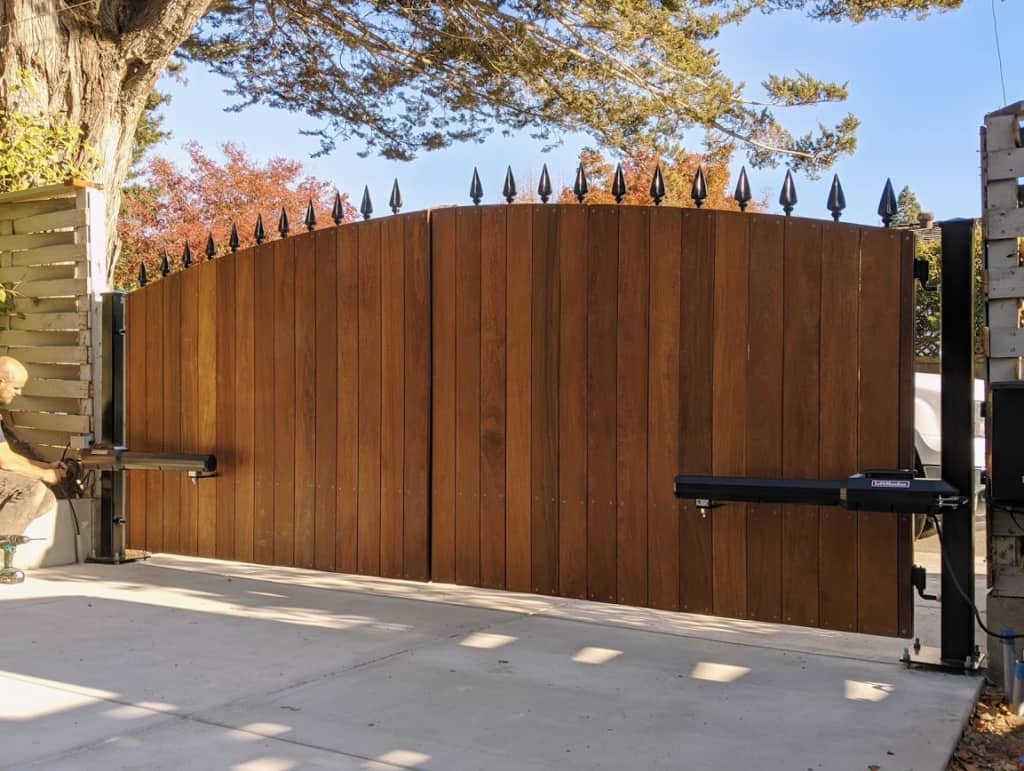Automatic gates have become increasingly popular in recent years due to their convenience, security, and practicality. They come in a variety of materials, each with distinct advantages and disadvantages. When deciding which material to choose for your automatic gate, there are several factors to consider, including durability, cost, style, and security. Here are some tips on how to choose the right material for your automatic gate.
1. Durability
One of the most important factors to consider when choosing the material for your automatic gate is its durability. The gate you choose should be able to withstand harsh weather conditions and heavy use. The durability of the material will depend on a number of factors, such as the quality of the material, the thickness of the metal, and the method of fabrication. Some of the most durable materials for automatic gates include wrought iron, steel, and aluminum.
Wrought iron is one of the most durable materials for automatic gates. It is resistant to rust, corrosion, and weathering, making it ideal for outdoor use. Wrought iron gates are also very heavy, which makes them difficult to break or tamper with. The main disadvantage of wrought iron gates is that they require regular maintenance to keep their appearance and prevent rust.
Steel is also a very durable material for automatic gates. It is stronger than wrought iron and does not require as much maintenance. Steel gates are also resistant to harsh weather conditions and can be painted to match your home’s exterior. However, steel gates can be very heavy and are often more expensive than other materials.
Aluminum is a lightweight and durable material that is ideal for automatic gates. It is resistant to corrosion and rust, making it a popular choice for coastal areas. Aluminum gates also require little maintenance and can be easily customized to suit your specific needs. However, aluminum gates may not be as strong as wrought iron or steel gates.
2. Cost
The cost of the gate you choose will depend on the material you choose, as well as the size and style of the gate. While it may be tempting to choose a less expensive material to save money, it is important to consider the long-term costs of maintenance and repairs. Some materials may require more maintenance than others, which can add up over time.
Wrought iron gates are typically the most expensive, due to the cost of the material and the labor required to fabricate the gate. Steel gates can be slightly less expensive than wrought iron, while aluminum gates are often the least expensive. The cost of the gate will also depend on the size and style of the gate, with larger gates generally costing more than smaller gates.
3. Style
The style of the gate you choose should complement the architectural style of your home. If you have a modern home, a sleek aluminum or steel gate may be a good choice. For a more traditional home, a wrought iron gate with intricate details may be more appropriate. When choosing the style of your gate, consider the color, design, and hardware.
4. Security
Automatic gates are a great way to enhance the security of your property. When choosing the material for your gate, consider its level of security. Wrought iron gates are very secure due to their weight and strength. Steel gates are also very secure, but may require additional hardware to prevent tampering. Aluminum gates may be less secure than wrought iron or steel gates, but can still provide adequate security if properly installed.
FAQs
1. How do I maintain my automatic gate?
The maintenance requirements of your automatic gate will depend on the material you choose. Wrought iron gates require regular maintenance to prevent rust, while aluminum gates require little maintenance. To maintain your gate, clean it regularly with soap and water, and inspect it for signs of wear and tear.
2. How do I choose the right size for my automatic gate?
The size of your automatic gate will depend on the size of your driveway and the type of vehicles you plan to enter and exit your property. The gate should be wide enough to accommodate the widest vehicle that will be using the driveway. The height of the gate should also be considered to prevent unauthorized access.
3. How do I choose the right automatic gate opener?
The automatic gate opener you choose should be compatible with the weight and size of your gate. The opener should also be able to handle the number of cycles per day that your gate will be opening and closing. Consider the type of drive system, motor power, and safety features when choosing the right opener.
4. Can I install an automatic gate on a hill?
Yes, automatic gates can be installed on hills or uneven terrain. However, the gate may require additional hardware to ensure proper operation.
Choosing the right material for your automatic gate is an important decision that should not be taken lightly. By considering the factors discussed above, you can choose a material that is durable, cost-effective, stylish, and secure. With the right gate, you can enhance the security and convenience of your property, while adding value and aesthetic appeal.


